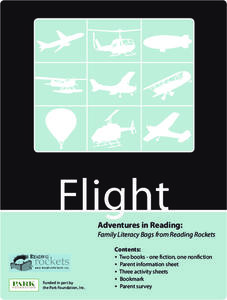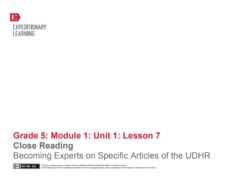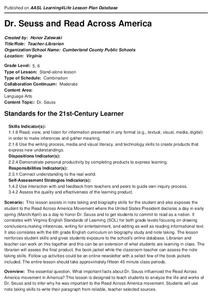K5 Learning
What Police and Detectives Do
What do police and detectives do to keep their community safe? Six short-answer questions make up a activity designed to reinforce reading comprehensions skills while providing information about police officers and detectives.
K5 Learning
Alex and Amanda's First Concert
Going to your first concert is an unforgettable experience. Read about two sisters making plans to attend their first concert with a reading passage and multiple-choice questions.
K5 Learning
Finders Keepers
If you found five hundred dollars in the park, would you keep it or turn it in? Exercise both reading comprehension skills and philosophic beliefs in a language arts reading activity about three boys who stumble upon a small fortune...
K5 Learning
Sun, Stars and Moon
Learners read about the objects we see in our night and day skies before answering five short answer comprehension questions.
K5 Learning
The Wolf
Fourth graders have likely heard the expression to cry wolf, but they may not know the saying's origin. A short reading passage tells the story and includes four comprehension questions for pupils to demonstrate their...
PBS
Reading Adventure Pack: Flight
A Reading Adventure pack focuses on the invention of flight. After reading a fiction and nonfiction book, scholars take their newfound knowledge to design a one-passenger flying device, experiment with different types of paper airplanes...
Curated OER
Lesson Plan for C.S Lewis’ The Magician’s Nephew
Here is a lesson that incorporates music writing, and reading literature. The class reads chapter eight from the C.S. Lewis classic The Magician's Nephew. Then, just like in the story, they use music as inspiration to create (write)...
Curated OER
Let's Get it Together! Reading to Learn
Let’s learn about frogs! Young readers are led through “Freaky Frogs,” a non-fiction article. Teach learners how to edit an article so there are fewer details to sift through. After talking through the article, they learn the six steps...
EngageNY
Close Reading: Unpacking Specific Articles of the UDHR
Lesson 6 of this extensive unit finally has your class begin to work their way through specific articles from the text of the Universal Declaration of Human Rights (UDHR). Before examining the rights actually detailed in the...
EngageNY
Close Reading: Becoming Experts on Specific Articles of the UDHR
A continuation of the previous lesson plan, which is part of a larger group of lessons on human rights (see additional materials). Here, in Lesson 7, your class will explore more articles from the Universal Declaration of Human Rights....
EngageNY
Informative Paragraph Pre-Assessment: What Is One Reason You Want the Power of Reading?
This writing pre-assessment has minimal instruction but maximum support and encouragement. It begins with a review of the book, Rain School, through a think-pair-share and small group discussion. The discussion...
EngageNY
Close Reading of Nasreen's Secret School: How Do People Access Books in Afghanistan?
Third graders continue to practice the close reading skills of capturing the gist and reading again for important details in the sixth lesson in a larger unit. This is a great beginning-of-the-year unit for establishing visible thinking...
Millard South Patriots
Trait Practice: Sentence Fluency
Do your young writers need a little help varying their sentence structure? Have them work on common errors, sentence fluency, and writing patterns with a series of language arts activities. The resource includes reading passages as well...
1 plus 1 plus 1 equals 1
I Can Read! Sight Words Set #11
Work on the fundamentals with your little learners. A packet that focuses on four sight words (not, make, funny, and am) guides kids through reading activities such as matching, tracing, and word recognition.
1 plus 1 plus 1 equals 1
I Can Read! Sight Words Set #13
Take the first steps to reading fluency with a set of language arts activities. Kids work on the sight words pretty, ran, so, and out with tracing worksheets and matching games.
Curated OER
Dr. Seuss and Read Across America
What important facts about Dr. Seuss influenced the Read Across America movement...? This is the driving question of a research project that requires scholars to find information about Dr. Seuss' life and work. Class...
Indiana Department of Education
Indiana K-12 Educators’ Resource Toolkit
Imagine a tool that magically engages readers in the classroom. A handbook for Indiana educators doesn't guarantee success, but it does offer a variety of strategies for teachers to try. The handbook opens with research-based theory...
Mr. Nussbaum
Battle of Fort Sumter
Fort Sumter, the site of the Civil War's first battle, taught the Union and the Confederacy an important lesson: they would both need to take stronger steps than anticipated if they wanted to win the war. History pupils read about the...
K12 Reader
Location, Location, Location
Why do some places in the world have more people living there than other places? Learn about the ways the countries have formed around natural resources with a reading comprehension activity. After kids read a short...
K12 Reader
Storytelling and Folklore
Stories are passed down orally in many cultures. Learn about the ways that storytelling can shape a society with a reading passage about Native American folklore and myths. After they finish reading, kids complete five reading...
K12 Reader
Ecosystems
Examine how living and non-living things work together in a reading passage about ecosystems. Class members read the text and then respond to five response questions that relate specifically to the content of the passage.
K12 Reader
Taiga Ecosystems
Introduce your class to another type of ecosystem, the taiga ecosystem, through a reading passage. Class members read the text and then respond to five reading questions about the content of the passage.
K12 Reader
What’s Eating You?
Introduce your class to producers, consumers, and pollinators with a reading passage. Class members read the text and respond to five related questions.
K12 Reader
They See with Their Ears
Sometimes bats get a bad rap, even though they are fascinating creatures! Teach your class about echolocation with a reading passage. After reading, class members respond to five questions based on the text.
Other popular searches
- Making Inferences in Reading
- Generalizations in Reading
- Context Clue in Reading
- Inferences in Reading
- Graphic Sources in Reading
- Fractional Parts in Reading
- Visualization in Reading
- Cloze Activity in Science
- Predictions in Reading
- Draw Conclusions in Reading
- Sequential Order in Reading
- Asking Questions in Reading























